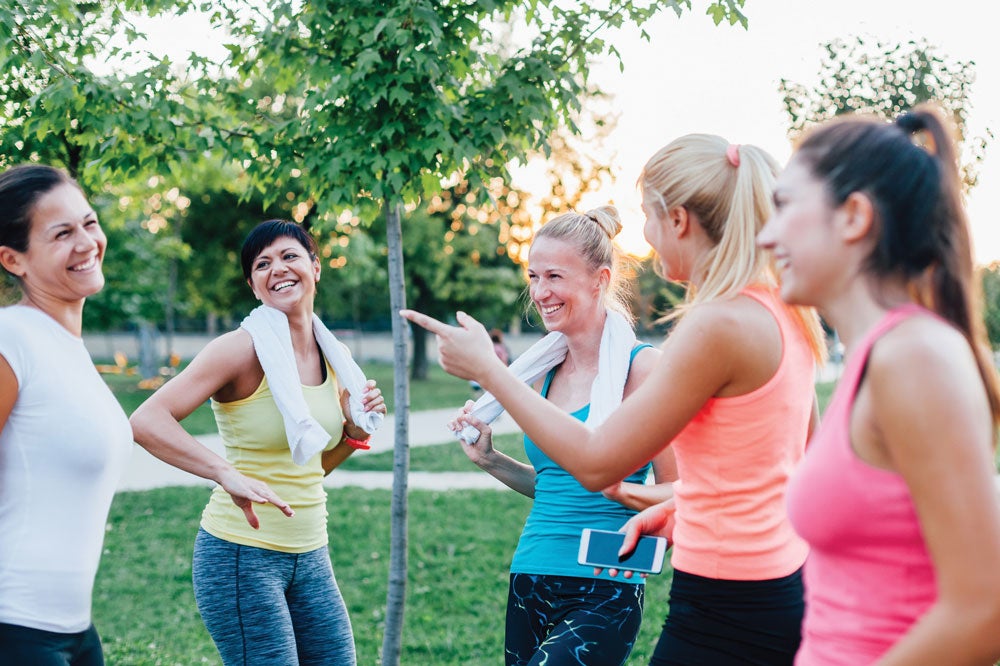How a Good Giggle Can Make You a Better Athlete

Photo: iStock
Forget trying to hang with your fast friend. You should be training with Mr. (or Ms.) Funny Guy.
No, this is not a joke. A 2016 study published in Gerontologist found that when members of an exercise class engaged in simulated laughter, their mental state, endurance and outlook on exercising improved.
OK, right now you’re probably thinking: That study’s only valid for older athletes. And I can’t laugh while I’m swimming. And you’re right, your options for yucking it up while racing are limited. However, you should still know about this paper even if you’re not eligible for any senior discounts because it could—at the very least—improve your relationship to the sport.
First of all, when it comes to emotions, sometimes you can fake it until you make it. “We have research that says that if you act out positive emotional states with your body language you can change your emotional or cognitive state from negative to positive,” says John Mayer, Ph.D., a Chicago-based clinical psychologist and triathlete. A 2012 paper from researchers at the German Sport University Cologne found smiling reduced an exerciser’s rate of perceived exertion. And “smiling is the precursor and the expression of laughter,” says Mayer.
In the Gerontologist paper, participants did “simulated” or forced laughing, which is when you mechanically laugh sans punch line. It may sound hokey; however, “Your body doesn’t know the difference between simulated and real laughter,” says Celeste Greene, who authored the study. A 2011 review of the “laughter literature” (that’s a thing) backs Greene up, finding that, while more research is needed, laughing on command did seem to have real psychological and physical benefits.
But laughter takes a lot of breath, making it tricky to incorporate in endurance sports. “A lactate threshold test is probably not an appropriate time to use laughter as a way to feel better,” says Erin Haugen, Ph.D., a sports psychologist in Grand Forks, S.D., and an age-group triathlete. Between sets, on speedwork day? Have at it. Especially if you’re training with a group.
One thing that Greene noticed in her study was that laughter diffused whatever competitive atmosphere was lurking in the room. Yes Greene was working with seniors. But we don’t have to tell you that the over-70 set still wants to lift the heaviest, work the hardest and be the best—just look at Kona’s 70-plus lineup. “With the laughter, everyone felt like they were a part of it,” she says. Haugen agrees and says that adding a few minutes of cackling to an otherwise brutal group workout could make the whole experience a lot more fun.
Come race day, though, it’s best to leave your stand-up routine at home and focus on the course. Still, you need not be straight-faced from start to finish. It’s fine to amuse yourself with funny thoughts, says Mayer. “Think of all the little techniques you use to take away the monotony of your training: music, audiobooks, meditation, checking and calculating your stats with your devices. These are all ways in which we divert our minds from the ‘work.’ Laughter is another tool to do that same thing. Enjoy and use it.”